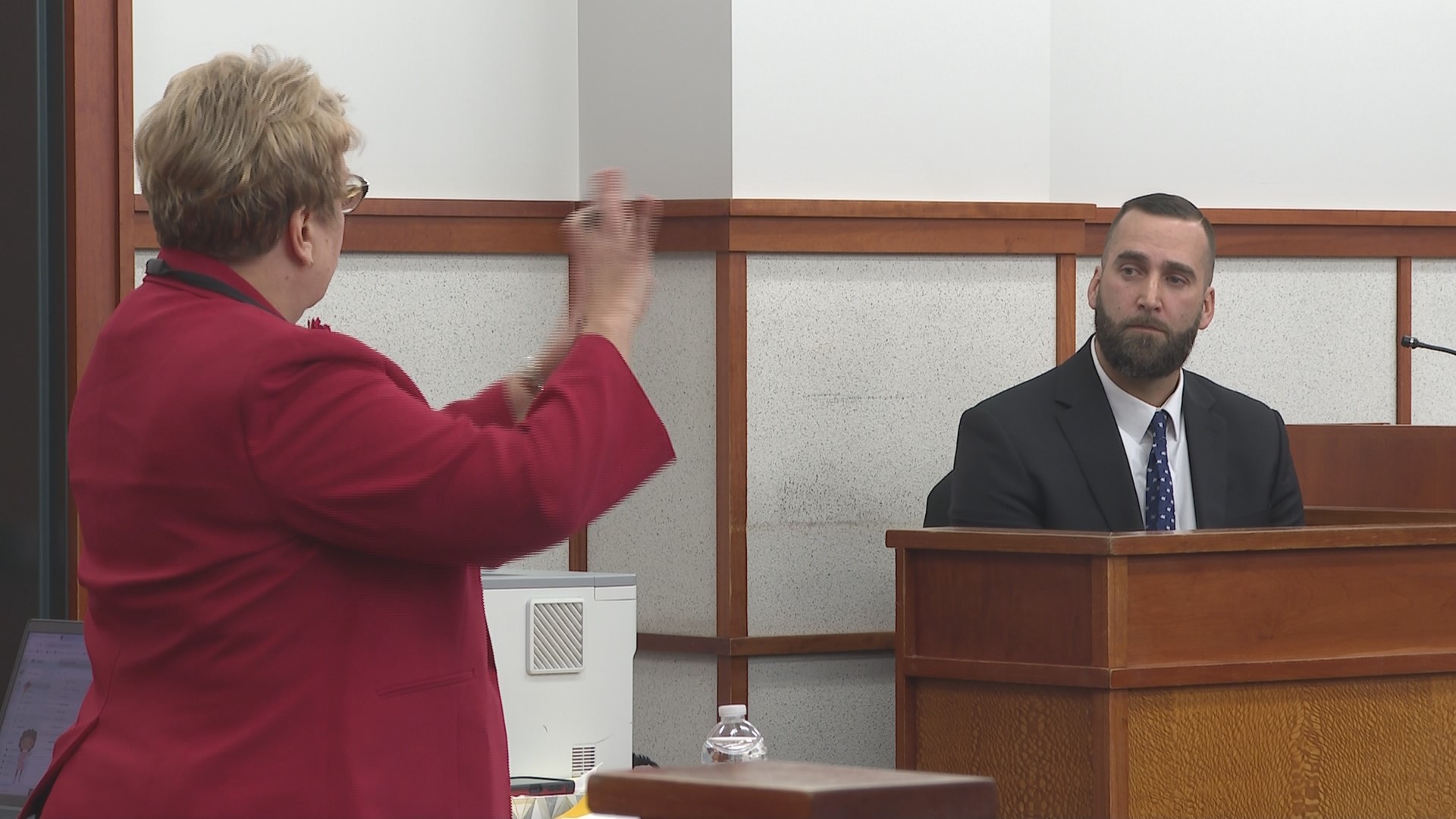PORTLAND, Maine — Brandon Brown would have to wait a little longer to find out if he was truly a free man.
Now living in Gilead, Brown was nearly four months into a four-year probation when he walked into Cumberland County Superior Court on Friday to ask a judge to release him early from probation. In the end, the judge would need more time to decide his fate.
Brown had previously served 12 years of a 27-year prison sentence for a 2008 attempted murder conviction for shooting and partially paralyzing a man in an altercation outside a Portland bar.
He left prison early because of good behavior—behavior his attorneys believe is extraordinary.
While in prison, Brown dedicated himself to education and outreach, earning multiple advanced degrees—the first Mainer in prison to earn even one.
As of Friday's hearing, he was working on his Ph.D. at George Mason University.
Brown volunteered and continuously worked multiple jobs mentoring students and incarcerated Americans around the country, in addition to advocating for prison reform in his home state.
In 2021, now-retired state Rep. Jeffrey Evangelos shared with NEWS CENTER Maine a letter Brown's victim wrote to Evangelos in support of commuting the rest of Brown's prison sentence while Brown was petitioning the state.
Stephen Schwartz was Brown's co-council on Friday and said if anyone deserved to have their probation shortened, Brandon was that person.
"We believe Brandon, with all of the many things that he has done to improve himself, to improve the lives of those around him, deserves that opportunity," Schwartz told us after the hearing.
Assistant District Attorney Meg Elam did not agree.
"Don't we have a right to expect that someone who's committed such a terrible crime will then make themselves employable, which is what he has done?" she posed after the hearing.
Elam said it was great Brown had rehabilitated. But she was the one who originally prosecuted Brown, and told the court Friday it was her pleasure to bring that case against him because of the severity of the crime. On Friday, she believed he had not served enough.
"Three months of probation is not an adequate substitute for the four years of probation he was sentenced to," she said during the interview.
The judge said he needed to review additional documents before rendering a decision and gave no expected end date.

